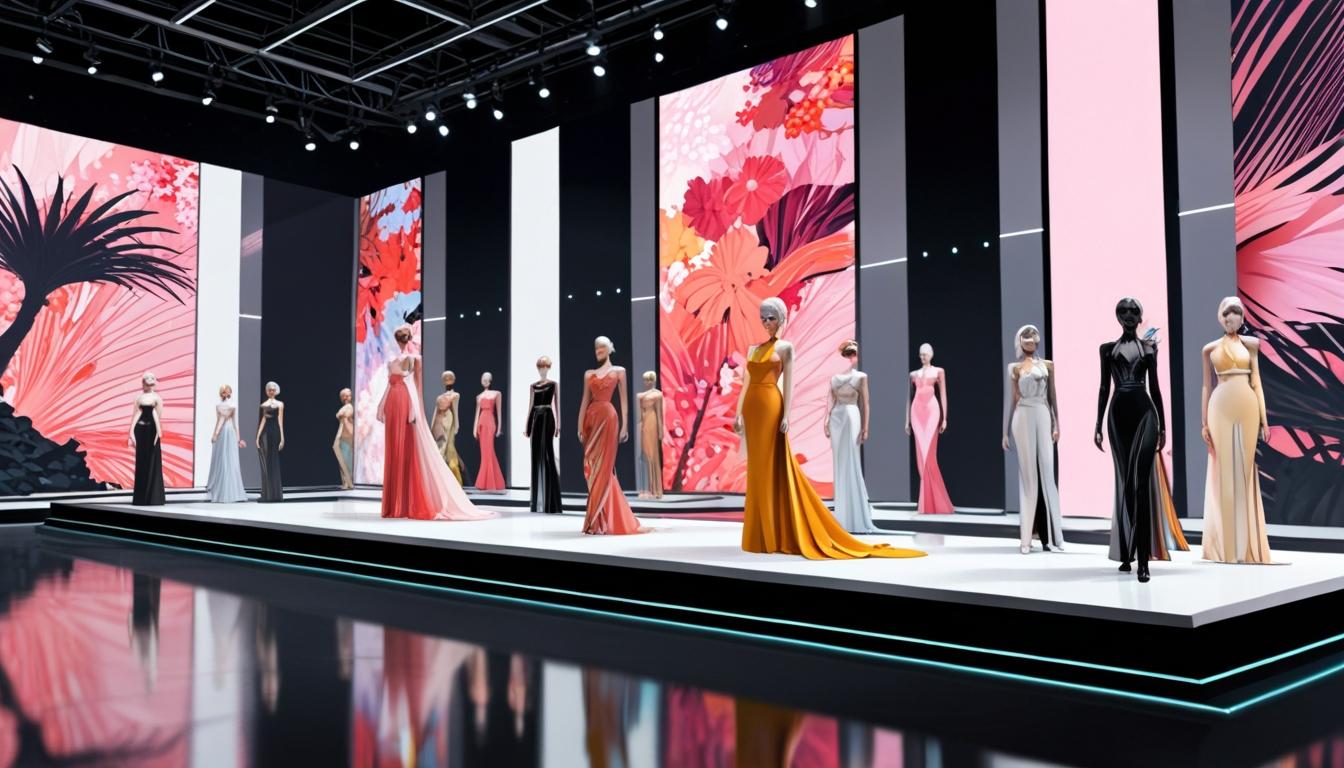The luxury fashion industry is merging tradition with modern technology as French brands like LVMH, Louis Vuitton, and Hermès venture into the digital realm through immersive experiences and NFTs.
The luxury fashion industry is increasingly traversing into the digital realm of the metaverse, with notable French brands embracing this new frontier. Several key players are making significant headway, employing innovative strategies to merge their storied traditions with modern technology.
In 2022, despite global market uncertainties, the global luxury market experienced growth. Leading this shift into the metaverse is LVMH, the world’s largest luxury brand conglomerate, which boasts prestigious labels such as Louis Vuitton and Dior. These brands are not merely adapting to a changing market; they are actively crafting immersive experiences that resonate with consumers—developing virtual stores, non-fungible token (NFT) collections, and augmented reality filters to marry elegance with cutting-edge tech.
Louis Vuitton has emerged as a pioneer with its VIA program that integrates augmented reality into shopping experiences, alongside Louis The Game, an interactive game launched in 2021 that serves as both storytelling and brand engagement tool. This game immerses players in the brand’s rich history while offering exclusive NFTs tied to Louis Vuitton’s legacy, demonstrating the brand’s commitment to progressing in the digital space without losing its prestigious image.
Not far behind, Hermès is adopting a similar strategy by creating exclusive digital assets in the form of NFTs that showcase its famed craftsmanship. This move allows the brand to connect with younger, tech-savvy audiences while maintaining its luxury ethos.
Chanel is also engaging its audience with immersive digital experiences, leveraging augmented reality to create innovative fashion showcases. For instance, it has introduced AR filters via Instagram that allow users to interact with Chanel’s iconic designs in a dynamic manner, blending the physical and digital realms seamlessly.
Dior has taken strides to incorporate immersive campaigns that feature digital exclusives, facilitating the exploration of its collections through augmented and virtual reality. This approach not only caters to the brand’s elegance but also amplifies consumer engagement and loyalty in the crowded luxury market.
Balenciaga has pushed the envelope further by collaborating with gaming platforms such as Fortnite, where it integrates high-end fashion with immersive virtual experiences. This partnership allows the brand to reach a demographic that may not typically engage with luxury fashion, while enhancing its presence within the metaverse.
Givenchy has adopted a slightly different approach, focusing on storytelling through its NFT collections that showcase intricate artistry reminiscent of its physical designs. Each token narrates its unique tale, thereby engaging consumers on a more personal level.
The Kering Group plays a crucial role in this digital transformation by consolidating its brands’ efforts, fostering innovation, interoperability, and sustainability across different technologies. Their strategy involves creating a coherent digital ecosystem that enhances user experiences while safeguarding data security and fostering trust.
Overall, the entry of French luxury brands into the metaverse highlights a growing trend that seeks to redefine engagement in the digital age. These brands have established themselves as leaders by finding balance between maintaining exclusivity while embracing broader consumer engagement in the virtual landscape. The luxury sector is progressively blending tradition with innovation, setting new benchmarks for digital fashion experiences and customer interaction. As these brands continue to navigate the complexities of the metaverse, their methodologies and practices may very well set the stage for others to follow in the changing landscape of luxury fashion.
Source: Noah Wire Services





Many thanks, I appreciate this!
casino en ligne
Appreciate it, Plenty of stuff!
casino en ligne fiable
Nicely put. Thank you!
casino en ligne
Thanks a lot. Excellent stuff!
casino en ligne
Many thanks! Wonderful stuff.
casino en ligne
You said it very well.!
casino en ligne
Truly a good deal of good tips.
casino en ligne fiable
Really many of beneficial data!
casino en ligne
With thanks! A good amount of knowledge!
casino en ligne
Nicely put, Appreciate it.
casino en ligne